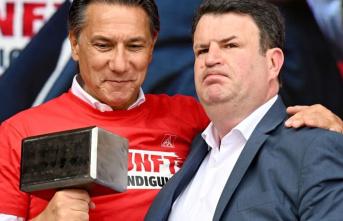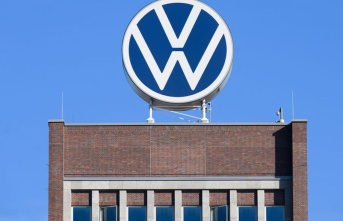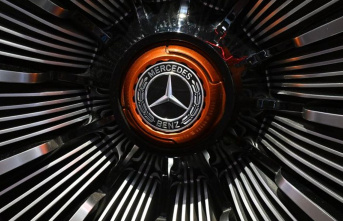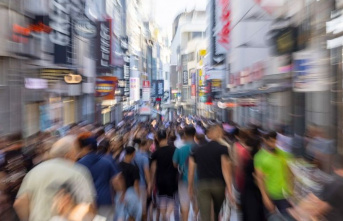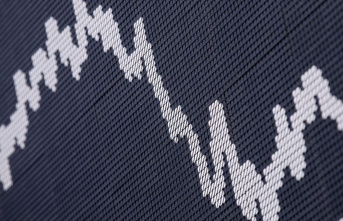The argentine president, Alberto Fernandez, has chosen to move away from the policy of isolation towards Nicolas Maduro that characterized his predecessor, Mauricio Macri. The president, who took power in December, neither is willing to be an ally stalwart of the venezuelan leader, unlike the former president Cristina Fernández de Kirchner (2007-2015), now vice-president. With its new foreign policy, Argentina bet, such as Mexico, a third way to find a peaceful solution to the political and economic crisis of Venezuela.
"The argentine Government deeply regrets the episodes recorded on the day of the date in the Bolivarian Republic of Venezuela," begins the press release issued on Sunday by the foreign ministry. Argentina rejects the blockade of Parliament and the maneuver by pro-government that culminated with the proclamation of the opponent dissident Luis Parra as president of the National Assembly of Venezuela with the support of chavismo.
"Are inadmissible for the democratic coexistence, the acts of harassment suffered by mps, journalists and members of the diplomatic corps at the time of attempting to enter the premises of the National Assembly, to elect the new leadership of its board of directors," continues the Chancellery led by Felipe Solá.
The Fernandez administration has avoided talk of a coup in the National Assembly on the part of Maduro, and has urged the political forces in venezuela to retrieve the dialogue "in a framework of full respect for the freedoms and the institutional mechanisms".
Debut in the summit of Celac
The argentine foreign minister Felipe Solá will participate next Wednesday in the Summit of the Community of Latin American and Caribbean States (Celac), his international debut. Venezuela and Bolivia will be part of the discussion agenda, but Argentina also aims to use the regional forums as a springboard for the construction of a role of progressive leadership in the region along with Mexico.
The change of position of Argentina has left Brazil as the main advocate of the hard line against Maduro in the Group of Lima, created in 2017, to accompany the venezuelan opposition in the search of a solution to the crisis. Only six short months ago, under the Presidency of Macri, the foreign ministers of the countries members of the bloc —including Peru, Colombia, Chile and Paraguay— met in Buenos Aires to support Guaidó and warn that violations of human rights "does not leave room for some countries to continue to support the illegitimate regime of Maduro".
The macrismo, now from the opposition, has asked Fernandez for the immediate convocation of a meeting of the Mercosur for divorce jointly, the appointment of new authorities, parliamentarians, a proposal that nothing indicates that go to thrive. "The prevent access to the deliberation of the president [John Guaidó] and more than 40 legislators for a part of the Armed Forces and police not only de-legitimises the fraudulently elected, but that, in addition, makes explicit a real 'Coup' that can't be supported or consented to", stresses the conservative alliance Together for Change in a press release.
the change of The regional agenda of Fernandez is not limited to Venezuela but is also visible with the neighbors Brazil and Bolivia. Buenos Aires and Brasilia are doomed to be understood for its important bilateral trade, but the lack of tuning between both leaders can muddy the relationship. Jair Bolsonaro campaigned for the re-election of Macri and refused to congratulate the president-elect for his victory. Shortly after, suggested that if the argentine Government refuses to accede to the free trade agreement signed between Mercosur and the European Union, "will have to be removed" as a partner of the regional bloc, where Fernández is currently the only leader who is not of the right.
The relationship with Bolivia is marked by the decision of the argentine Government to give asylum to Evo Morales. From Buenos Aires, the former president of bolivia, who resigned after losing the support of the Armed Forces, he lashes out daily against the interim president of Venezuela, Jeanine Áñez and try to reach consensus on the candidate of the Movimiento al Socialismo (MAS) which will be presented to the presidential elections next may 3.
the united States, favorable to support Áñez and the electoral process, has expressed its displeasure over the stance taken with regard to Caracas and the refuge granted to Morales. On the 10th of December, a representative of the Executive of Donald Trump flew to Buenos Aires for the inauguration of the argentine president but did not attend the ceremony to learn that an officer of Ripe sanctioned by the Management of Trump was among the attendees. Some u.s. officials have warned some days ago that the foreign policy of argentina may impair the support of his Government to the south american country in negotiations with the International Monetary Fund for the payment of the debt and out of any investments in gas and non-conventional oil in the reservoir Vaca Muerta.
Date Of Update: 06 January 2020, 20:00






